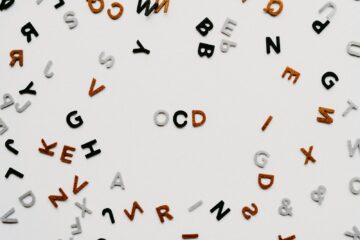Abstract
Computerized Cognitive Behavioral Therapy (CCBT) has emerged as an accessible and scalable intervention for mental health challenges, particularly for depression. This article synthesizes post-2020 evidence on CCBT’s efficacy, mechanisms of action, and implementation challenges. Findings suggest that CCBT demonstrates comparable effectiveness to traditional therapy formats, with structured intervention models and therapist support enhancing outcomes. Additionally, CCBT offers advantages in accessibility and personalization, making it a promising tool for expanding mental health services. However, heterogeneity in study designs, adherence issues, and limited generalizability underscore the need for further research. Future directions include refining intervention models, integrating neuroscientific insights, and expanding access to underserved populations.
- Introduction Cognitive Behavioral Therapy (CBT) is a well-established and evidence-based intervention for depression, widely recognized for its efficacy in modifying maladaptive thought patterns and behaviors (Williams et al., 2022). With advancements in digital technology, CBT has evolved into a computerized format (CCBT), offering greater accessibility, cost-effectiveness, and flexibility for individuals who may struggle with traditional face-to-face therapy (Fox et al., 2024).
CCBT programs provide structured modules that guide users through cognitive restructuring exercises, behavioral activation, and self-monitoring techniques. Recent studies explore how CCBT enhances self-regulation and transforms negative thinking patterns to alleviate depressive symptoms (Chen, 2024). This review examines contemporary research on CCBT’s effectiveness, the underlying mechanisms of its therapeutic action, and key challenges and opportunities for its broader implementation.
- Effectiveness of CCBT for Depression Recent systematic reviews highlight CCBT’s potential in reducing depressive symptoms, particularly when interventions incorporate interactive components and structured therapist support.
2.1 Comparative Effectiveness
A meta-analysis comparing various cognitive behavioral interventions found that therapist-supported CCBT was more effective than fully self-guided programs (Bjornstad et al., 2024). Studies have demonstrated that:
- CCBT interventions can yield symptom reductions comparable to traditional in-person CBT when structured effectively.
- Programs incorporating guided support (e.g., therapist check-ins) result in greater adherence and improved treatment outcomes (Fox et al., 2024).
- CCBT interventions focusing on cognitive restructuring show a significant reduction in negative thinking patterns (Chen, 2024).
2.2 Long-Term Outcomes and Sustainability
A randomized controlled trial found that an online CBT life skills program not only reduced depressive symptoms in the short term but also maintained improvements over six months (Williams et al., 2022). Sustained benefits of CCBT may be attributed to:
- Continued engagement with self-help strategies.
- The reinforcement of cognitive and behavioral changes through digital reminders and exercises.
- The accessibility of digital interventions, allowing users to revisit therapeutic materials as needed.
- Mechanisms of CCBT in Depression Treatment CBT operates by modifying maladaptive thought patterns, and its computerized format retains this core principle while offering enhanced scalability and personalization.
3.1 Cognitive Restructuring
Cognitive restructuring is a key component of CCBT, helping users identify and challenge negative thoughts. Studies indicate that CCBT fosters self-regulation by providing structured cognitive exercises that facilitate:
- The replacement of irrational beliefs with balanced perspectives (Barton et al., 2023).
- Improved emotional regulation and resilience against stressors (Chen, 2024).
- Increased self-efficacy in managing depressive symptoms (Williams et al., 2022).
3.2 Neuroscientific Insights
Emerging research has examined the neurological effects of CCBT, suggesting that:
- EEG-based studies indicate changes in brain activity associated with cognitive restructuring (Yadav & Professor, 2023).
- Improvements in spatial brain activity correlate with reductions in depressive symptoms, suggesting neuroplastic changes.
- Neurobiological markers may predict CCBT treatment responsiveness, enabling more personalized interventions (Yadav & Professor, 2023).
- Moderators of Success Key factors influencing the effectiveness of CCBT include:
- Intervention Structure: Programs incorporating structured self-help modules and therapist support show higher engagement and effectiveness (Fox et al., 2024).
- Personalization and Adaptation: Tailoring interventions to users’ individual symptom profiles improves adherence and outcomes (Williams et al., 2022).
- Blended Models: Hybrid approaches that integrate self-guided CCBT with periodic therapist check-ins enhance engagement and effectiveness (Bjornstad et al., 2024).
- Challenges and Limitations Despite its advantages, CCBT faces several barriers that must be addressed for broader implementation:
5.1 Adherence Issues
One of the primary challenges in CCBT interventions is participant dropout. Studies have found that:
- Fully self-guided programs often experience high attrition rates due to a lack of accountability (Bjornstad et al., 2024).
- User engagement is enhanced when interventions include motivational features, reminders, and occasional therapist interactions (Fox et al., 2024).
5.2 Accessibility and Digital Divide
While CCBT increases accessibility, disparities in digital literacy and internet access may limit its reach. Research suggests that:
- Low-income populations face barriers in accessing digital interventions (Fox et al., 2024).
- Future developments should prioritize mobile-friendly designs and offline access to bridge the digital divide.
- Future Directions To enhance the effectiveness and accessibility of CCBT, future research and development should focus on:
- Neuroscientific Research: Further exploration of EEG-based biomarkers to predict CCBT responsiveness (Yadav & Professor, 2023).
- Blended Models: Combining CCBT with periodic therapist check-ins to improve engagement and treatment adherence (Bjornstad et al., 2024).
- Culturally Adapted Interventions: Expanding access to culturally diverse and low-income populations through tailored content (Fox et al., 2024).
- AI-Powered Personalization: Utilizing machine learning to adapt CCBT interventions dynamically based on user progress and response patterns.
- Conclusion CCBT represents a promising intervention for depression, particularly when leveraging structured cognitive exercises and therapist-guided models. While significant progress has been made in establishing its effectiveness, challenges related to adherence, accessibility, and personalization remain. Future research should prioritize standardizing methodologies, improving personalization through AI and neuroscience, and ensuring equitable access to maximize CCBT’s public health impact.
References
- Barton, S., Armstrong, P., Robinson, L., & Bromley, E. (2023). CBT for difficult-to-treat depression: self-regulation model. Behavioural and Cognitive Psychotherapy, 51(5), 543–558. https://doi.org/10.1017/S1352465822000273
- Bjornstad, G., Sonthalia, S., Rouse, B., Freeman, L., Hessami, N., Dunne, J., & Axford, N. (2024). A comparison of the effectiveness of cognitive behavioural interventions based on delivery features for elevated symptoms of depression in adolescents: A systematic review. Campbell Systematic Reviews, 20(1). https://doi.org/10.1002/cl2.1376
- Chen, Y. (2024). Mechanism of CBT in Patients with Depression: The Role of Transforming Negative Thinking. Lecture Notes in Education Psychology and Public Media, 41, 20240794. https://doi.org/10.54254/2753-7048/41/20240794
- Fox, F., Wiles, N., Kessler, D., Tallon, D., Thomas, L., Williams, C., Shafran, R., Lanham, P., & Turner, K. (2024). Patients’ and Therapists’ Views of Integrated Online CBT for Depression. Health Expectations: An International Journal of Public Participation in Health Care and Health Policy, 27(1). https://doi.org/10.1111/hex.70002
- Williams, C., McClay, C., Martinez, R., Morrison, J., Haig, C., Jones, R., & Farrand, P. (2022). Online Cognitive Behavioral Therapy (CBT) Life Skills Program for Depression: Pilot Randomized Controlled Trial. JMIR Formative Research, 6(1), e30489. https://doi.org/10.2196/30489
- Yadav, R., & Professor, A. (2023). Identifying the Depression in Patients through EEG-Based Classification Using Spatial Information. NeuroQuantology, 19(5), NQ21083. https://doi.org/10.48047/nq.2021.19.5.nq21083


